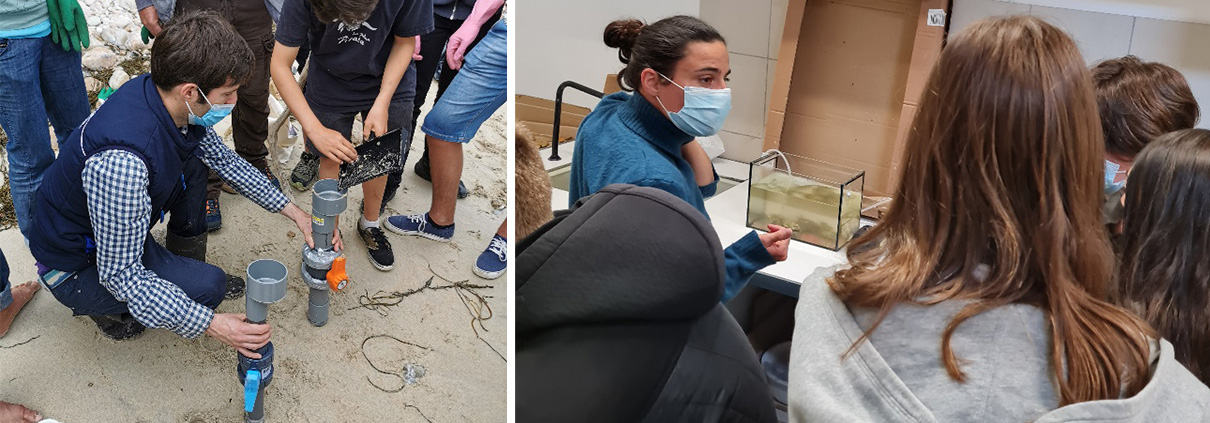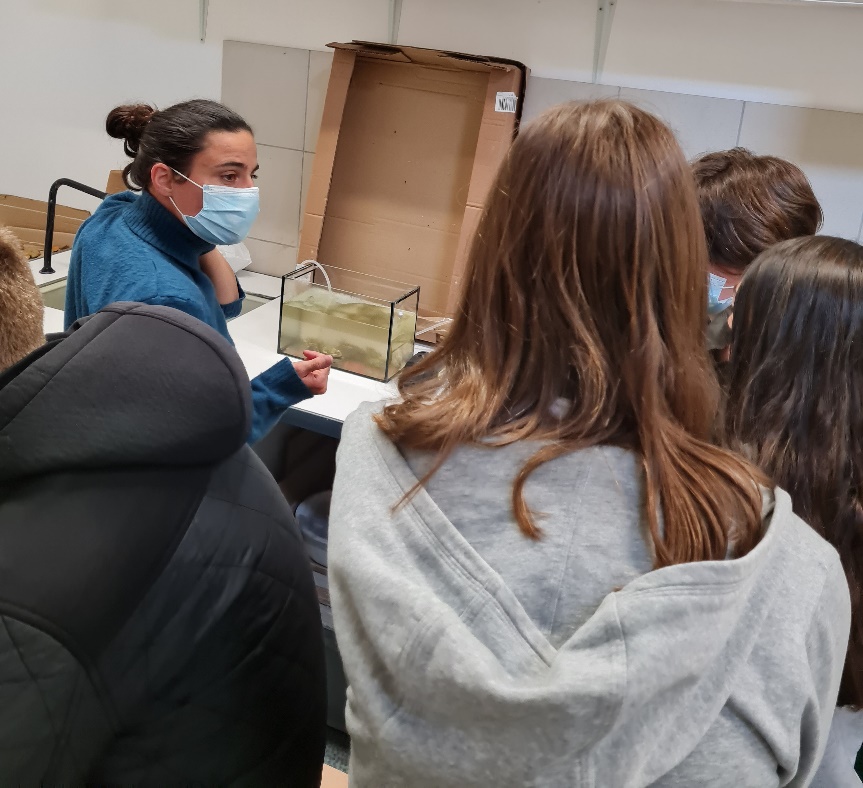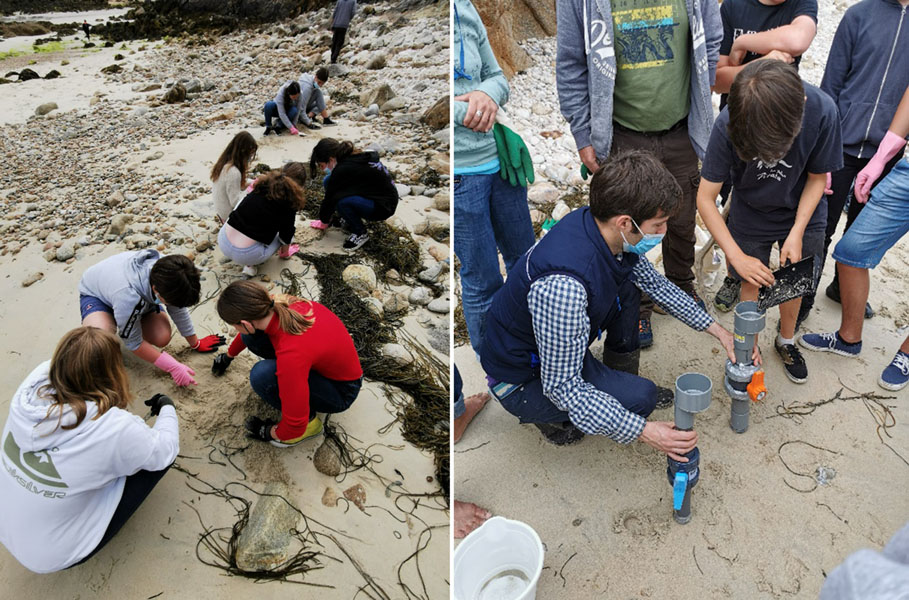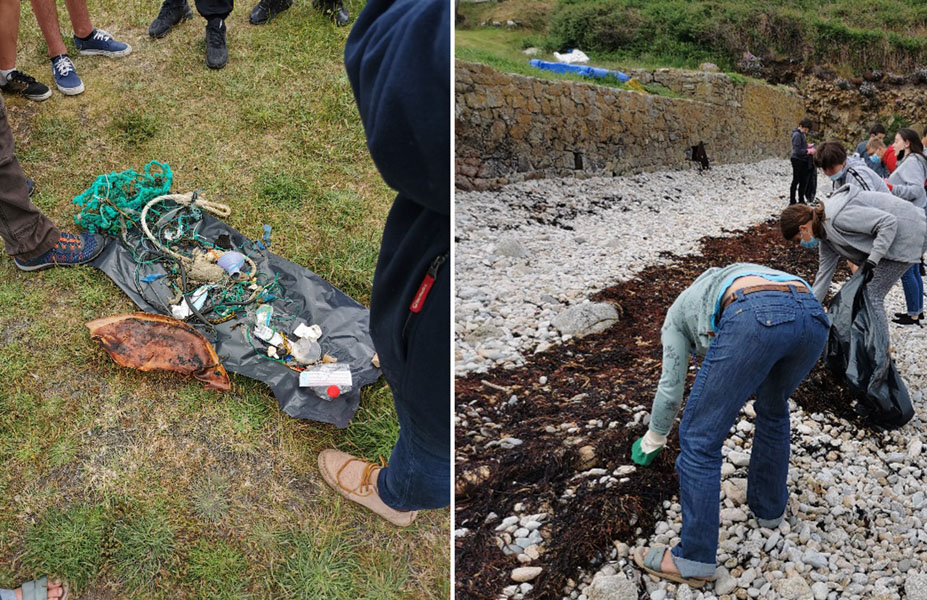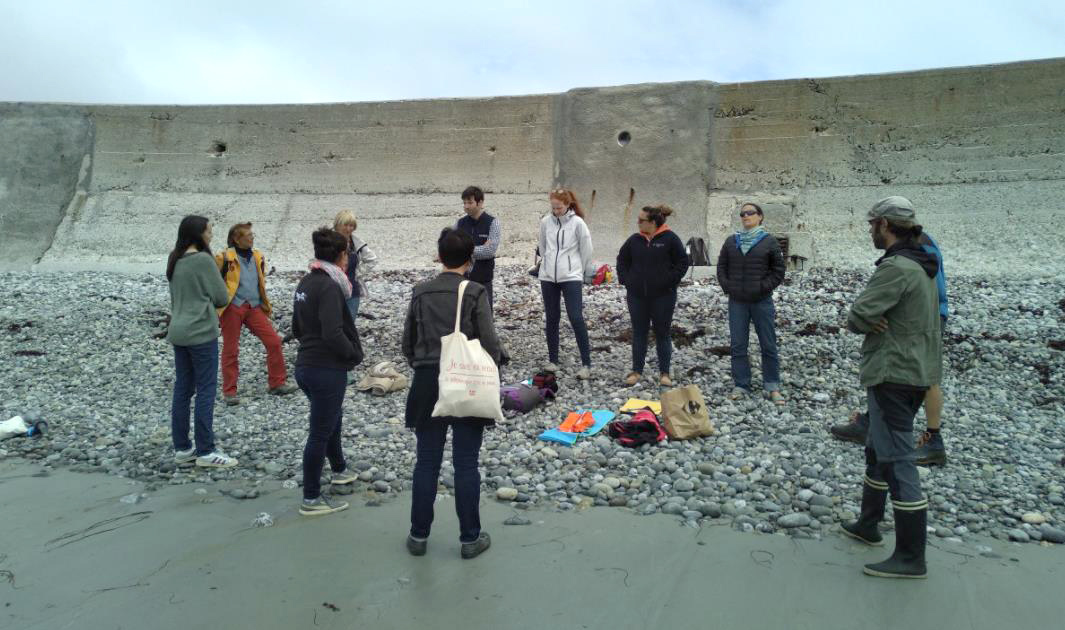Plastic pollution awareness on Ouessant island
As part of the Preventing Plastic Pollution project, the partners CNRS, Océanopolis and the Parc Naturel Marin d’Iroise went to the island of Ouessant for two days to raise awareness of plastic pollution among schoolchildren and the island’s inhabitants. The various workshops carried out sought to explain the problem of plastic waste at sea as well as the consequences of pollution by microplastics on marine organisms. Particular attention was also paid to the management of waste in an island environment.
Fifteen secondary school students, from the 6th to the 3rd grade, took part in a first session of exchanges in class, with an initial information session on the research professions and then on the characteristics of plastics and microplastics. Then, the students were divided into three practical workshops.
- The first workshop consisted of observing microalgae (oyster food) and coloured microplastics (polyethylene) under a microscope in order to explain how oysters feed and to raise the first questions in connection with the next workshop.
- The second workshop aimed at setting up a scientific approach to observe and identify the impacts of microplastics on oysters (external link in French).
- Finally, the last workshop was dedicated to identifying the different types and forms of plastics present in our daily lives: from textile fibres to industrial plastic granules (IPG) that can be found on beaches.
The next day, the facilitators and the pupils went to the Prat beach to collect macro-waste. Fishing nets, ropes, water bottles and cigarette butts were collected. The waste was then identified and counted according to the OSPAR protocol. The schoolchildren were then able to test the participatory science protocol developed by Océanopolis to collect and count microplastics. To do this, they took the first two centimetres of sediment at the most recent sea level and carried out a densimetric separation using a prototype.
The students then played the game of a “zero waste picnic” prepared by themselves: water bottles, bee wraps and reusable containers were all on the menu.
The afternoon ended with a workshop, initiated by the Association des Iles du Ponant and the Parc Naturel Régional d’Armorique, with a dozen eco-actors and inhabitants of the island of Ouessant. Discussions revolved around microplastics, related research activities, the use of the Océanopolis participative science kit and the involvement of everyone in the ecological transition on the island.
These awareness-raising days with schoolchildren and the island’s inhabitants will have led to the creation of new projects involving PPP partners and Ouessant island stakeholders. Exchanges are underway to involve the schoolchildren in the work carried out on the management of illegal dumping, led by the Iroise Natural Marine Park. The school also wants to get involved in the long-term participatory science project, which will provide new data on plastics for the PPP project. The first meeting of the island’s eco-actors will also have enabled exchanges to be launched around various projects such as the use of tidal bins or the creation of a recycling centre on the island.

